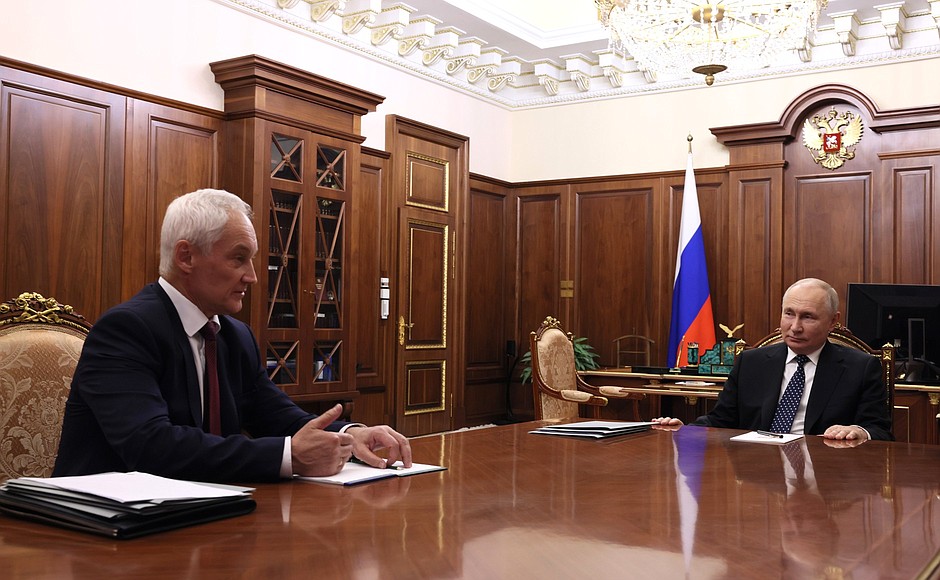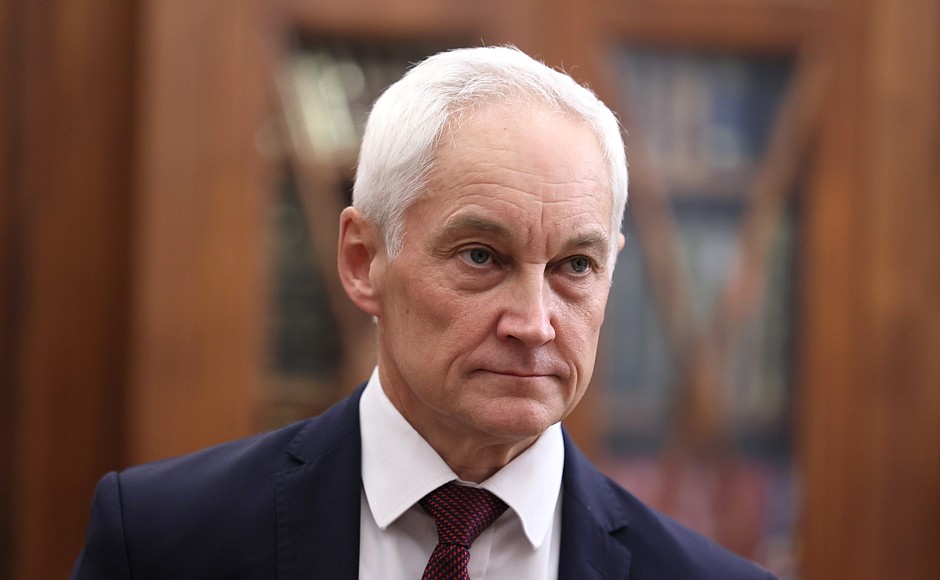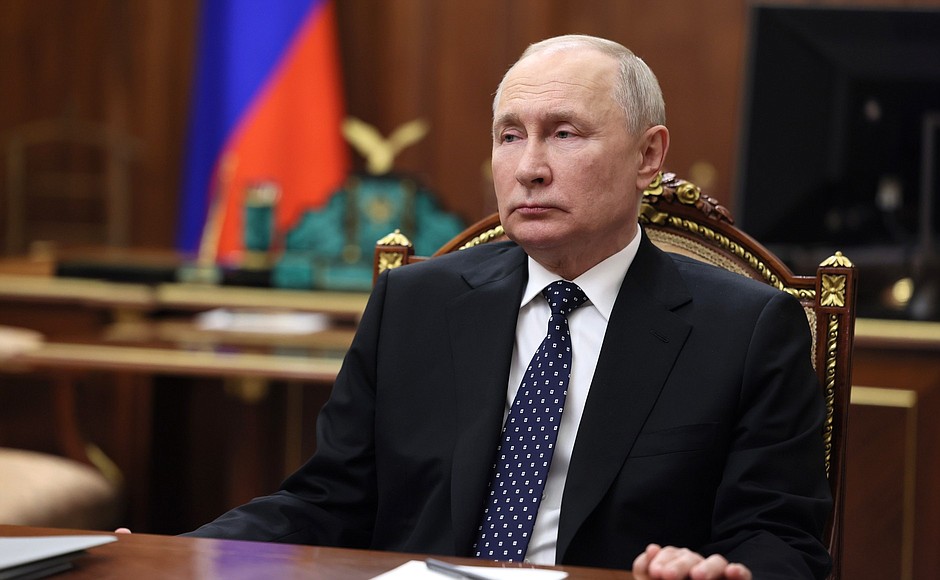First Deputy Prime Minister Andrei Belousov: Mr President,
As per your instructions, the Government approved the Technological Development Concept in May 2023 and started working on a technology policy bill almost immediately. The bill formalises the main ideas and notions described in the approved document.
I would like to note that this is a unique bill; for obvious reasons, we have never had such a bill before. In effect, its aim is to achieve technological sovereignty.
The voluminous 75-page bill has 10 chapters and 46 articles. However, I would like to dwell on the bill’s three innovations.
The first innovation deals with the so-called technological sovereignty projects. In our opinion, this is a highly important aspect implying the most ambitious projects receiving investment worth over 10 billion rubles to create a specific line of products. The Prime Minister has already listed these projects, and there will be about 10 of them, as soon as the bill is approved. These projects include the manufacture of machine tools, microelectronics, unmanned aerial vehicles, diesel engine manufacturing, certain types of chemicals, medical equipment, pharmaceutics, etc.
What is their distinctive feature? Any ambitious project in this category involves numerous participants. First, the bill states expressly that long-term steady demand on the part of the state or companies with state capital is essential. It reduces project implementation risks for all of its participants.
Second, the status of the general contractor is clearly defined. We have experience in state defence procurement with general contractors, it is fully justified, including as shown by recent events. The same scheme is implemented here: there may be one or several general contractors, but they must be clearly defined companies, usually private businesses that enter into long-term contracts with carriers of long-term demand. This long-term contract serves as the basis for obtaining government support measures, including preferential loans, benefits and various instruments, which are also set forth in the bill.
Next, the responsibility of the general contractor is to form a system of cooperation, with a technological net, or technological maps, that is, a list of those critical technologies that are necessary for the manufacture of a given product line of high-tech products determined within this cooperation system, which is also an innovation of this law. And thus, the R&D priorities are determined. It means that these works for critical technologies are not created according to priorities determined in the offices of scientists or bureaucrats like me but come from the very specific needs of high-tech product manufacturing.
Next, regulatory support and staffing all come down to one big project. The project, made on your instructions, on unmanned aircraft systems, is an example of such a project, which we can use to test the technology.
The second innovation is projects of the so-called end-to-end technologies. That is, technologies that are breakthrough today, as a rule, and will determine the trend for production systems for the coming years and sometimes decades.
A classic example we are already used to is artificial intelligence. But this is not only artificial intelligence, it is also new materials with specified properties or with programmable properties; a new generation of energy storage devices, which is extremely necessary in widely different sectors; biotechnology; 6G stations, and so on.
We already have experience in developing these technologies as part of the Government’s agreements with the largest companies, also in line with your instructions. But the experience of the past few years, and especially last year, shows that the legal framework is not sufficient to implement them. And this bill closes the gap, especially since these technologies naturally spill over to the projects of technological sovereignty, which I spoke about a little earlier.
The third innovation which we also consider to be very important is the adoption of a solid legal framework for the development of small technological companies.
The very term “small technological company” came into our legal practice as part of the law adopted this spring at your instruction. But that was only the beginning. We determined what kind of companies they were, their criteria and the selection mechanism. But it is not enough because we need to create a clear system for the seamless development and growth of these companies, starting with technology teams and start-ups and ending with the so-called large unicorn companies that can compete on global markets. So, the bill covers these gaps.
We have settled on a registry-based model, which has proven useful in the area of IT. The prototype of the electronic platform information system has already been developed by the Ministry of Economic Development. It is a state information system that comprises a register of such companies. The register has two functions: it serves as a shop window for major investors, venture funds and development institutes and at the same time it provides for concentrating support measures and seamless opportunities for the growth of these companies and increasing their revenue.
There is another range of innovations, I will not go into detail, but I will say that the work on the bill is almost finished. I held a meeting to coordinate the Finance Ministry’s comments, which are numerous as usual. I think we came to an agreement on everything, at least, this stage has been formally completed.
Several days ago, I held a meeting with the law enforcement agencies on the so-called right to risk, which is a very important element of the bill. We came to an understanding with the Federal Security Service and the Interior Ministry. There are some issues we are still working on, but overall, the solutions have been found.
I must say that a big number of people took part in drafting this bill, including experts, the Russian Academy of Sciences was very actively involved, as well as representatives of innovative companies, State Duma deputies and members of the Federation Council.
Vladimir Putin: It is very important. Please, continue your work so that the bill would not lose its focus.
Thank you very much.
<…>



